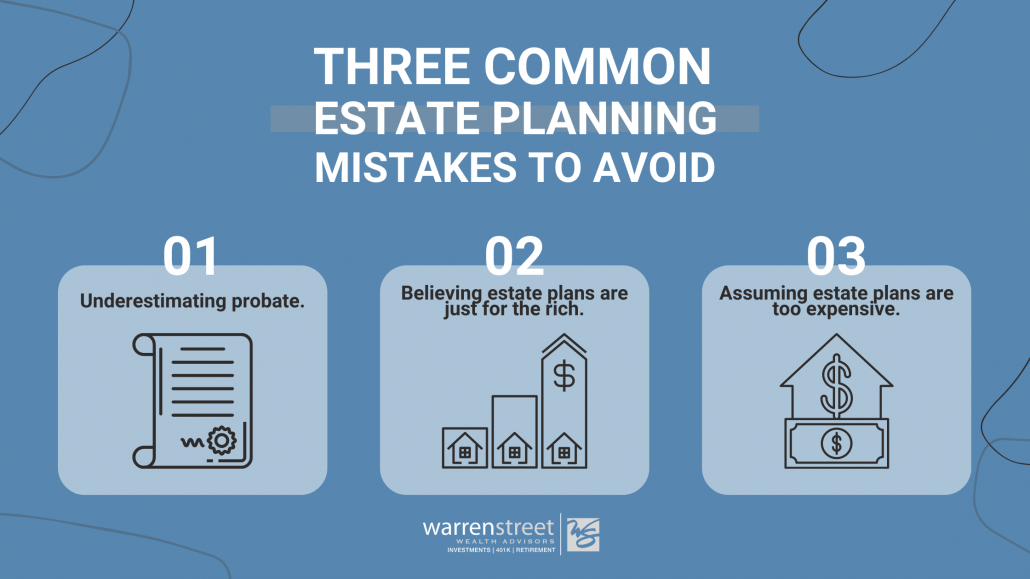Probate: 3 Easy Ways to Avoid it
Probate is the court process used to determine who gets an inheritance. In the eyes of a financial planner, it is a court process that most clients should try to avoid for many reasons. The probate process is time-consuming, usually lasting about a year depending on how backed up the courts are. The expense for probate is very high, which includes thousands of dollars going towards attorney and court fees. Probate is also a public court event in which potential heirs can object to the ruling pretty easily, causing privacy concerns and more attorney costs. While probate can have its time and place, there are some simple ways to avoid probate.
Let’s take a look at three easy steps you can take now to keep your loved ones from having to deal with probate.
- Primary Beneficiary Designations – If a 401(k) account or life insurance policy lists a primary beneficiary, the account avoids probate and passes directly to the listed beneficiary. For brokerage accounts this is usually referred to as a Transfer-On-Death (TOD) account, and for bank accounts this is referred to as a Payable-On-Death account.
- Contingent Beneficiary Designations – Setting a contingent beneficiary is also an easy way to help avoid probate. The contingent beneficiary is the person(s) next in line to inherit if the primary beneficiary has already passed away at the time of the account holder’s passing.
- Retitle Your Automobile & House – Don’t forget about your car and home! If your vehicle or house are listed in your name alone, they would turn into probate assets at the time of your passing. Some states have introduced TOD car and house titling as a way to avoid needing probate if the owner passes away. Also, you and your spouse should consider owning the car and house jointly with rights of survivorship, as another way to avoid probate.
These planning points provided today are just some of the easy actions you can do yourself. There are more ways to avoid probate, but they get a little more complex and depend on your personal situation.
With legal matters like this, it is always a good idea to start working with an estate planning attorney, as well as with a financial advisor. Work with a Warren Street Wealth Advisor today to get your personalized financial plan and more guidance on estate planning.

Bryan Cassick, MBA, CFP®
Wealth Advisor, Warren Street Wealth Advisors
Investment Advisor Representative, Warren Street Wealth Advisors, LLC., a Registered Investment Advisor
The information presented here represents opinions and is not meant as personal or actionable advice to any individual, corporation, or other entity. Any investments discussed carry unique risks and should be carefully considered and reviewed by you and your financial professional. Nothing in this document is a solicitation to buy or sell any securities, or an attempt to furnish personal investment advice. Warren Street Wealth Advisors may own securities referenced in this document. Due to the static nature of content, securities held may change over time and current trades may be contrary to outdated publications. Form ADV available upon request 714-876-6200.

